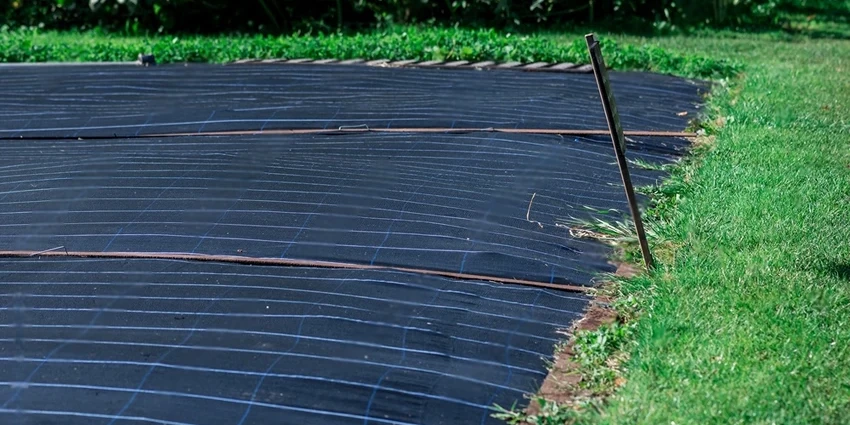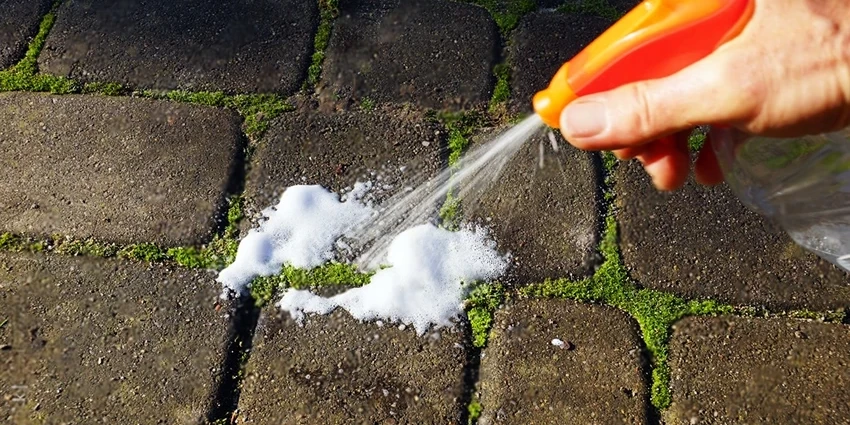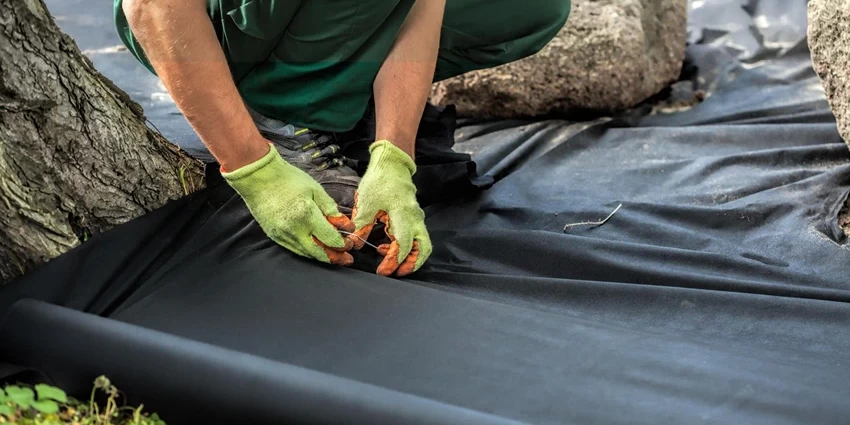All products were chosen independently by our editorial team. This review contains affiliate links and we may receive a commission for purchases made. Please read our affiliates FAQ page to find out more.
Home » Lawn Health » Chemical Weed Killers: A Guide for Optimal Lawn Health
Maintaining a healthy lawn often involves the strategic use of chemical weed killers. These herbicides play a crucial role in controlling unwanted vegetation, ensuring your lawn remains not only aesthetically pleasing but also healthy. In this comprehensive guide, we delve into the various aspects of chemical weed killers, focusing on their types, application, and safety measures.
Introduction to Chemical Weed Killers
Chemical weed killers, or herbicides, are substances used to control or eliminate unwanted plants. They are an integral part of lawn care, especially in combating invasive species that can outcompete grass and other desired flora. Understanding their role and how they work is the first step in effective lawn management.

Key Takeaways:
- Understanding the types and purposes of chemical weed killers.
- Insights into choosing and applying the right herbicides.
- Emphasizing safety and environmental considerations.
- Addressing common mistakes and misconceptions.
Types of Chemical Weed Killers
Contact Herbicides
Contact herbicides are designed to kill only the plant parts they touch. They are effective for surface-level weed control but may not always reach the root systems. This type makes for an ideal choice when targeting visible weed growth without affecting the plants’ root zone.

Systemic Herbicides
In contrast, systemic herbicides are absorbed by the plant and transported throughout its system, including the roots. This type is particularly effective for deep-rooted weeds, ensuring complete eradication.
Selective vs. Non-selective Herbicides
Selective herbicides target specific weed species, while non-selective herbicides can kill any plant they come into contact with. Selective types are preferable for lawns, as they eliminate weeds without harming the grass.
| Herbicide Type | Target | Usage |
| Contact | Plant Surface | Surface-level weed control |
| Systemic | Whole Plant | Deep-rooted weed eradication |
| Selective | Specific Weeds | Lawn-friendly weed control |
| Non-selective | All Plants | Broad-spectrum weed elimination |
How to Choose the Right Chemical Weed Killer

Choosing the right herbicide involves considering several factors:
- Weed Type: Identify the weed species to select an effective herbicide.
- Lawn Species: Consider the grass type to avoid damage.
- Environmental Conditions: Account for weather and soil conditions.
Reading labels and instructions is crucial for effective and safe application. Look for glyphosate in non-selective herbicides for broad-spectrum control, and selective herbicides for lawn-specific applications.
Application Techniques for Chemical Weed Killers
Effective application of weed killers is key to their success. Here are some best practices:
- Timing: Apply during optimal weather conditions, avoiding windy or rainy days.
- Equipment: Use sprayers or applicators suited for the herbicide type.
- Coverage: Ensure even distribution for effective weed control.
Safety is paramount. Wear protective gear and follow the manufacturer’s guidelines.
Safety Precautions and Environmental Considerations

Handling chemical weed killers requires adherence to safety guidelines:
- Personal Protection: Use gloves, masks, and protective clothing.
- Storage: Store herbicides in a safe, dry place away from children and pets.
- Disposal: Follow local regulations for disposing of unused herbicides.
Environmental considerations include understanding the impact of herbicides on soil health, water sources, and non-target organisms. Opt for eco-friendly weed control methods where possible and use chemicals responsibly to minimize environmental impact.
Common Mistakes and Misconceptions

When using chemical weed killers, it’s easy to fall prey to common errors and misconceptions. Awareness of these pitfalls can significantly enhance the effectiveness and safety of your weed control efforts.
- Overapplication: Excessive use of herbicides can harm the lawn and environment. Follow the recommended dosage.
- Wrong Timing: Applying herbicides in unsuitable weather conditions reduces their effectiveness.
- Ignoring Safety Precautions: Neglecting personal safety and environmental care can lead to harmful consequences.
| Mistake | Consequence | Prevention |
| Overapplication | Lawn damage, environmental harm | Adhere to recommended dosage |
| Wrong Timing | Reduced effectiveness | Apply in optimal weather |
| Ignoring Safety | Health risks, environmental impact | Follow safety guidelines |
Alternatives to Chemical Weed Killers
For those seeking eco-friendly options, several alternatives to chemical herbicides are available:
- Organic Herbicides: Made from natural ingredients, they offer a safer option.
- Manual Weeding: Labor-intensive but effective and chemical-free.
- Mulching: Suppresses weed growth by blocking sunlight.
| Alternative | Benefits | Considerations |
| Organic Herbicides | Safer for environment | May require repeated application |
| Manual Weeding | Chemical-free | Labor-intensive |
| Mulching | Prevents weed growth | Needs regular maintenance |
Future Trends and Developments

The future of weed control is likely to see significant changes:
- Technological Innovations: Advancements in herbicide formulations and application methods.
- Regulatory Changes: Stricter regulations on chemical use and environmental impact.
| Trend | Description | Impact |
| Technological Innovations | New herbicide formulas | More effective and safer options |
| Regulatory Changes | Stricter chemical use laws | Increased focus on eco-friendly methods |
Register for our latest in-depth reviews and product round-ups from the experts.
Enter your email address below to receive our monthly review emails.
By entering your details, you are agreeing to our terms and conditions and privacy policy. You can unsubscribe at any time.
FAQs on Chemical Weed Killers
The best time is during mild weather conditions, preferably in spring or fall, when weeds are actively growing.
If used incorrectly, yes. It’s crucial to choose the right herbicide for your lawn type and follow application instructions.
Yes, options like organic herbicides, manual weeding, and mulching are effective and environmentally friendly alternatives.
A passionate plant enthusiast on a mission to turn every space into a blooming haven. With a love for all things botanical, I'm your gardening guide, sharing quick tips, the joy of nurturing plants, and the belief that every day is a great day to garden. Join me in cultivating a thriving garden paradise—we'll sow, grow, and flourish together in this green revolution!








